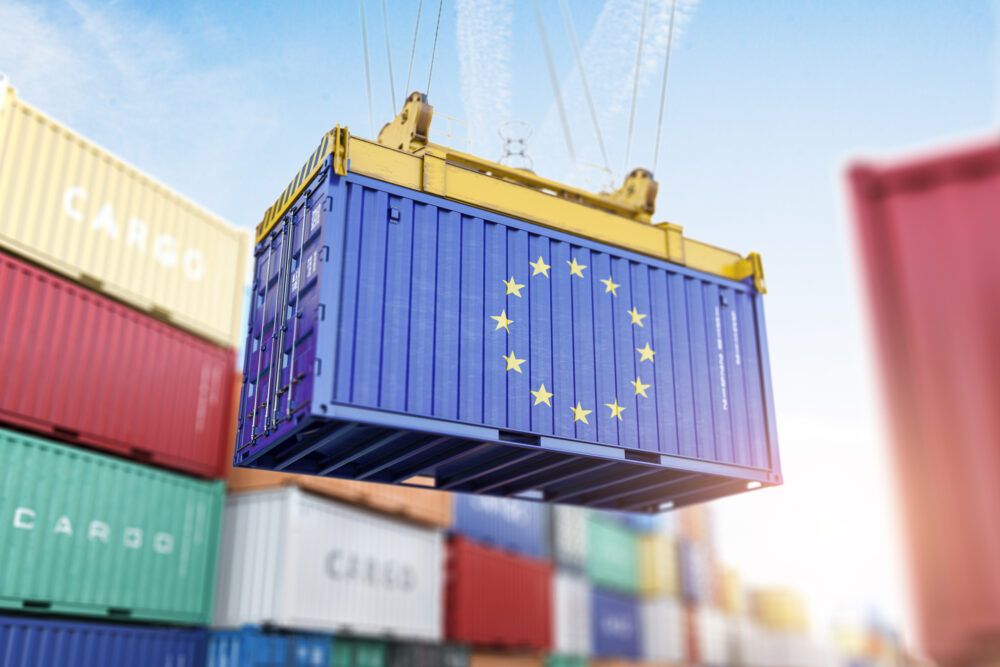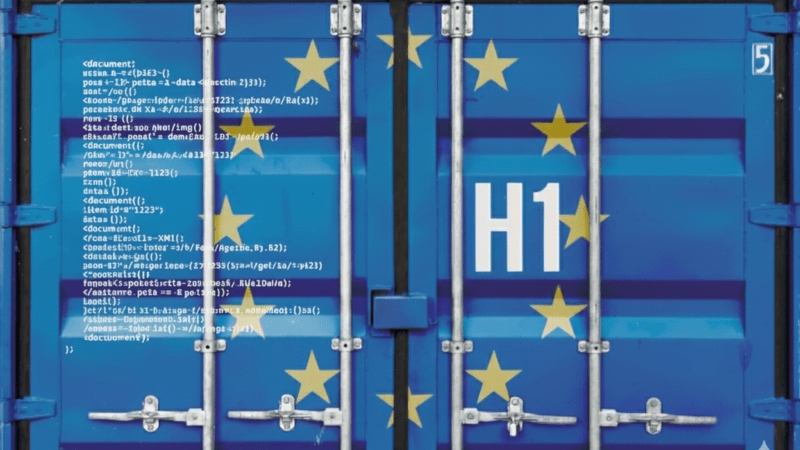 The eFTI Regulation will boost the digitisation of the sector and bring a number of operational and economic savings. (Getty Images)
The eFTI Regulation will boost the digitisation of the sector and bring a number of operational and economic savings. (Getty Images)
eFTI: the digital leap forward in freight transport information
What is eFTI (electronic Freight Transport Information)? It is the EU Regulation on electronic freight transport information that will enter into force in 2025. Among other things, it obliges competent authorities to accept information provided in electronic format.
 The eFTI Regulation will boost the digitisation of the sector and bring a number of operational and economic savings. (Getty Images)
The eFTI Regulation will boost the digitisation of the sector and bring a number of operational and economic savings. (Getty Images)
Freight transport information before eFTI
Paper documentation, fragmented information between multiple actors, the lack of a single system for data transmission....
These all contribute to inefficiencies in freight transport, which translate into delays, higher administrative costs and unnecessary documentary emissions.
In order to promote the digitisation of freight transport and logistics to reduce these inefficiencies, as well as to improve the enforcement capabilities of competent authorities and increase the efficiency and sustainability of transport, the European Commission adopted in 2020 the Electronic freight transport information Regulation (eFTI 2020/1056), which promotes the use of digital technologies to:
- Comply with the regulatory requirements associated with the documentation necessary for the transport of goods.
- Reduce administrative costs for operators.
- To achieve acceptance by the competent authorities of the information on the transport of goods provided electronically.
- Ensure uniform application of the acceptance obligation by the competent authorities.
- To ensure the interoperability of the IT systems and solutions used.
The eFTI Regulation aims only to facilitate and encourage the transmission of information between economic operators and competent authorities by electronic means, without going into the content of this information which must follow the provisions of the Union or its Member States.
The Regulation does not impose new information requirements and does not abolish the possibility of using paper documentation, but guarantees the right to electronic exchange of such information with administrations.
Lia Potec, policy officer at the European Commission's mobility and transport department, explained in the webinar ‘Electronic Freight Transport Information (eFTI) and its positioning in the Freight & Logistics sector’ that right now, the acceptance of electronic documentation "is quite unpredictable and varies from country to country or even competent authority."
"After analysing the situation," she explained, "we saw that action was needed to guide the acceptance of electronic documentation by authorities in a uniform way across the EU and to provide certain specifications for its use.”
...and freight transport information with the eFTI
The entry into force in 2025 of the eFTI establishes a legal framework for economic operators to share information in electronic format with authorities on the transport of goods by road, rail, inland waterway or air in the European Union.

The eFTI Regulation affects several EU regulations, such as those on tariffs, combined transport, road cabotage, waste shipment, dangerous goods, aviation safety and rail interoperability, among others.
After several delays, it is expected to be implemented from December 2025.
The ball is in the court of the authorities
Most notably, eFTI obliges authorities to accept electronically submitted information in the specific format prescribed by the Regulation, while economic operators are not obliged to use the electronic format and can continue to rely on paper documents.
The Regulation also requires authorities setting up their own systems to adhere to common standards established at EU level to ensure consistency across the territory.
As Jaume Bagot, Head of process improvement at the Port of Barcelona, explains, "In this case, private companies are ahead of administrations and competent authorities, as they are able to generate documents in electronic format that in many cases are not accepted by these administrations. However, with this regulation they will be obliged to do so".
Different actors will be able to access data depending on their level of authorisation to read or process it. This means that data does not need to be sent to the authorities every time a transport operation takes place and can remain on the eFTI platform without ever being checked.
This means that any transport within the EU or initiated within the EU to third countries, as well as information from outside the EU, could be submitted in the same electronic format using an eFTI platform, and could be read by any authority in the 27 Member States without any further specificity.
The Regulation targets exclusively documentation generated in the transport of goods by civil aviation, rail, road and inland waterway, as maritime transport is regulated by the maritime single window.
eFTI makes it mandatory for authorities to accept electronically submitted information in the specific format prescribed by the Regulation
Certified eFTI platforms
The exchange of documents will be done through eFTI platforms based on ICT systems and databases that will host the information in the documents. The Commission has a high-level architecture that requires authorities to connect to a national window, which in turn redirects their requests to the appropriate eFTI platform.
To secure this exchange, the European Commission foresees that platforms and providers have to be certified by a Conformity Assessment Body (CAB).
The data model, which includes all reporting requirements according to each legislation, is expected to be adopted in June/July 2023. Member States have until December 2025 to implement the eFTI Regulation, but can do so earlier if they are ready and certified eFTI platforms and service providers are available.
On the one hand, there are the certified platforms, private or public, and on the other hand the administrations that want to access the documentation/information.
But, in this scenario, access points have been enabled for competent authorities that will act only as intermediaries between the eFTI platforms and the competent authorities, without storing or processing the data they will intermediate in their access, except for the metadata that could be used for statistical purposes or to monitor transactions.

Economic operators are not obliged to provide the regulatory information in electronic format, but may do so if they use a certified eFTI platform and service provider.
Authorities can access the information on the eFTI platform upon request, and prior transport controls are being considered, as the eFTI Regulation provides a legal basis for its application.
They could make an enquiry through an eFTI window to check whether there is a unique identification link to information related to an active transport operation, and if such a link exists, authorities would be authorised to request access to the data.
Interoperability between IT systems and paper-based legacy systems is a challenge in the European freight transport sector. To ensure that a paper document has the same equivalent content as a computer record, there needs to be standardisation of data formats and protocols.
SIMPLE, the Spanish public platform
SIMPLE, SIMplification of Processes for a Logistic Enhancement, is the technological platform that will allow an integrated and digital management of documents, data and information flows linked to multimodal freight transport, between the different nodes and modes of the transport chain developed by the Ministry of Transport, Mobility and Urban Agenda, ADIF and State Ports.
The platform is a pilot project developed within the European FEDERATED framework, the aim of which is to validate the concepts of the federated network of platforms that will form the basis of the interoperable digital infrastructure.
SIMPLE allows real-time traceability of goods and documentation linked to their transport, in which data only needs to be entered once, facilitating interconnection between the different platforms.
This facilitates the interconnection between competent Public Administrations and between the Public Sector and the different agents of the private logistics sector.
An opportunity for the sector
The experts participating in the webinar commented that the development of these platforms, beyond their original purpose, represents an opportunity to transform the whole supply chain.
"It could be a turning point in the digitisation of the logistics sector if operators are convinced of the economic and operational benefits," said Alexio Picco, director of Circle Group.
On the former, the EU estimates considerable economic savings; €20-27 billion in administrative costs and €75-102 billion in working hours.
Spurred on by European regulations, digital maturity is making its way through the industry and authorities to leave paper behind for good.






